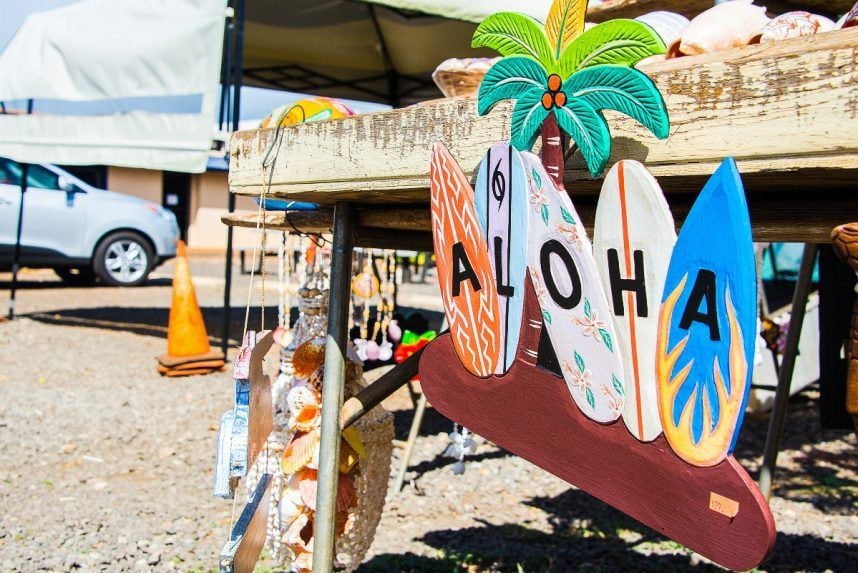Join Our Telegram channel to stay up to date on breaking news coverage
On April 9, 2025, Hawaii crossed a historic threshold. Long grouped with Utah as one of the two U.S. states with an absolute ban on gambling, Hawaii’s Senate passed House Bill 1308, bringing the Aloha State significantly closer to legalizing online sports betting. The vote – 15 in favor, 10 opposed – marks a pivotal shift in public policy, public sentiment, and economic strategy.
The legislation doesn’t just join Hawaii to the 39 states that already offer some form of regulated sports wagering. It redefines the state’s relationship with gambling altogether, and lays the groundwork for a digital-only betting market that could be live as early as July 1, 2025.
Key Takeaways
- Hawaii Senate passes HB 1308, pushing the state toward regulated online sports betting.
- The bill authorizes four digital-only sportsbook licenses, no land-based betting permitted.
- Operators must pay $250,000 upfront, with a 10% tax on gross gaming revenue.
- Launch could occur between July 1 and December 31, 2025, pending final approvals.
- Department of Law Enforcement will oversee regulation and compliance.
- Governor Josh Green is expected to sign the bill if the House concurs with Senate amendments.
Inside House Bill 1308: What’s Actually Proposed?
House Bill 1308 represents a carefully negotiated compromise between economic opportunity and social caution.
Originally passed in the House with a 35–15 majority, the bill underwent modest amendments in the Senate before its latest approval. Those changes – primarily reintroducing a 10% tax rate and reaffirming licensing fees – must now be re-approved by the House.
Core Components:
- Digital-Only Structure: All betting will be mobile or web-based. No casinos, no betting kiosks, no racetracks.
- Licensing Cap: Up to four sportsbook operators will be allowed at any given time.
- Fees and Taxes: $250,000 license fee, renewed annually, plus a 10% GGR tax.
- Regulator: Hawaii’s Department of Law Enforcement will manage licenses, audits, and enforcement.
- Responsible Gambling: Mandatory KYC checks, geolocation restrictions, marketing limitations, and exclusion tools.
This model mirrors states like Tennessee and Wyoming, both of which have successfully launched mobile-only betting ecosystems without the need for existing casino infrastructure.
Why Hawaii, and Why Now?
Hawaii’s anti-gambling stance has deep roots, stemming from cultural preservation concerns, religious opposition, and fear of social harms. But several key factors have shifted:
1. Rampant Offshore Gambling
Residents have long accessed unregulated sportsbooks through international platforms, creating financial leakage from the state and zero consumer safeguards.
2. Post-Pandemic Revenue Needs
The COVID-19 pandemic destabilized Hawaii’s tourism-reliant economy. Lawmakers are looking for new revenue sources that don’t rely on more hotel rooms or cruise ships.
3. Changing Demographics
A 2024 study by the Hawaii Tourism Authority found that 35% of residents aged 21–40 would likely place legal wagers if mobile betting were offered. Younger, tech-native voters are driving cultural change.
4. State Comparisons
As 39 other states legalize or launch sports betting, pressure is mounting to not fall behind in tech-driven economic sectors.
Industry Interest and Market Potential
Despite Hawaii’s relatively small population (~1.4 million), its unique geography and digital-only model have attracted attention from major operators. Industry analysts expect FanDuel, DraftKings, BetMGM, and Fanatics to apply for licensure as soon as the portal opens.
Market Forecast:
- Projected GGR (Year 1): $25–$35 million
- Estimated Tax Revenue: $2.5–$3.5 million annually
- License Fee Total: $1 million (if all four slots are filled)
These numbers won’t rival New Jersey or New York, but they’re meaningful for a state that runs on tight margins and limited taxable industries.
Regulatory Model and Oversight
The bill assigns licensing, compliance, and enforcement to the Department of Law Enforcement. This is an unconventional choice, but it reflects the state’s focus on control and public safety.
The regulatory structure will include:
- Background checks for operators and affiliates
- Data-sharing protocols with national exclusion registries
- Reporting requirements for wagers, revenue, and suspicious activity
- Audits of platform performance and anti-addiction features
Hawaii plans to use existing models from Colorado, New Jersey, and Tennessee to avoid building a framework from scratch.
Opposition and Remaining Concerns
Despite progress, the bill isn’t without its critics.
Who’s Opposed?
- Religious and cultural groups, citing erosion of local values.
- Consumer protection advocates, worried about gambling addiction and credit misuse.
- Some lawmakers, concerned about overreach by the Department of Law Enforcement and lack of public consultation.
A particularly sensitive issue is that the current version of HB 1308 does not earmark funding for addiction treatment, education, or prevention programs. Advocacy organizations like Hawaii Responsible Play Alliance are pushing for an amendment before final passage.
Safeguards in Place
HB 1308 includes a range of consumer protections, including:
- Age Verification & KYC: Multi-layer ID and document checks.
- Geo-Fencing: All users must place bets from inside state borders.
- Marketing Restrictions: Limits on promotions targeting underage or vulnerable users.
- Deposit Controls: Optional self-set limits and enforced cooling-off periods.
- Voluntary Self-Exclusion: Central registry accessible to all licensed operators.
Still, opponents argue that voluntary systems aren’t enough – and want to see mandatory interventions and state-funded research on gambling harms.
Political Outlook and Next Steps
The bill now returns to the House for concurrence with Senate amendments. If approved before the May 2, 2025 legislative deadline, it will head to Governor Josh Green.
Insiders suggest the Governor is favorable but cautious. He’s likely to sign the bill if assurances around regulation and responsible gambling are formalized in the implementation phase.
Post-Passage Timeline:
- Q2 2025: Final vote and gubernatorial approval
- Q3 2025: Licensing portal opens, regulatory guidelines published
- Q4 2025: First sportsbooks go live (targeting NFL season or NBA start)
Broader Implications
Hawaii’s pivot carries symbolic weight. As one of the last two holdout states, its movement toward legalization could influence remaining debates in Utah and other conservative regions. It also conveys that digital-only markets can work without brick-and-mortar investments or historical infrastructure.
The success (or failure) of Hawaii’s implementation will serve as a case study for the next phase of U.S. gambling regulation, emphasizing mobile convenience, state control, and modern consumer expectations.
Final Thoughts
HB 1308 could mark the most significant shift in Hawaii’s economic policy in decades. Betting on sports might not seem revolutionary, but a state that has banned even the lottery signals a broader modernization push.
For policymakers, it’s a bet on control, revenue, and responsible access. For operators, it’s a rare new market with tight competition and high retention potential. For residents, it’s a long-overdue acknowledgment of the reality: gambling is already happening. Now it can happen safely.
Sources
- Reuters – Hawaii Sports Betting Clears Senate
- Covers – Hawaii Betting Law Updates
- Daily Racing Form – Senate Approval
- Hawaii Legislature – SB1572
- Covers – Senate Passes HB1308
Join Our Telegram channel to stay up to date on breaking news coverage


